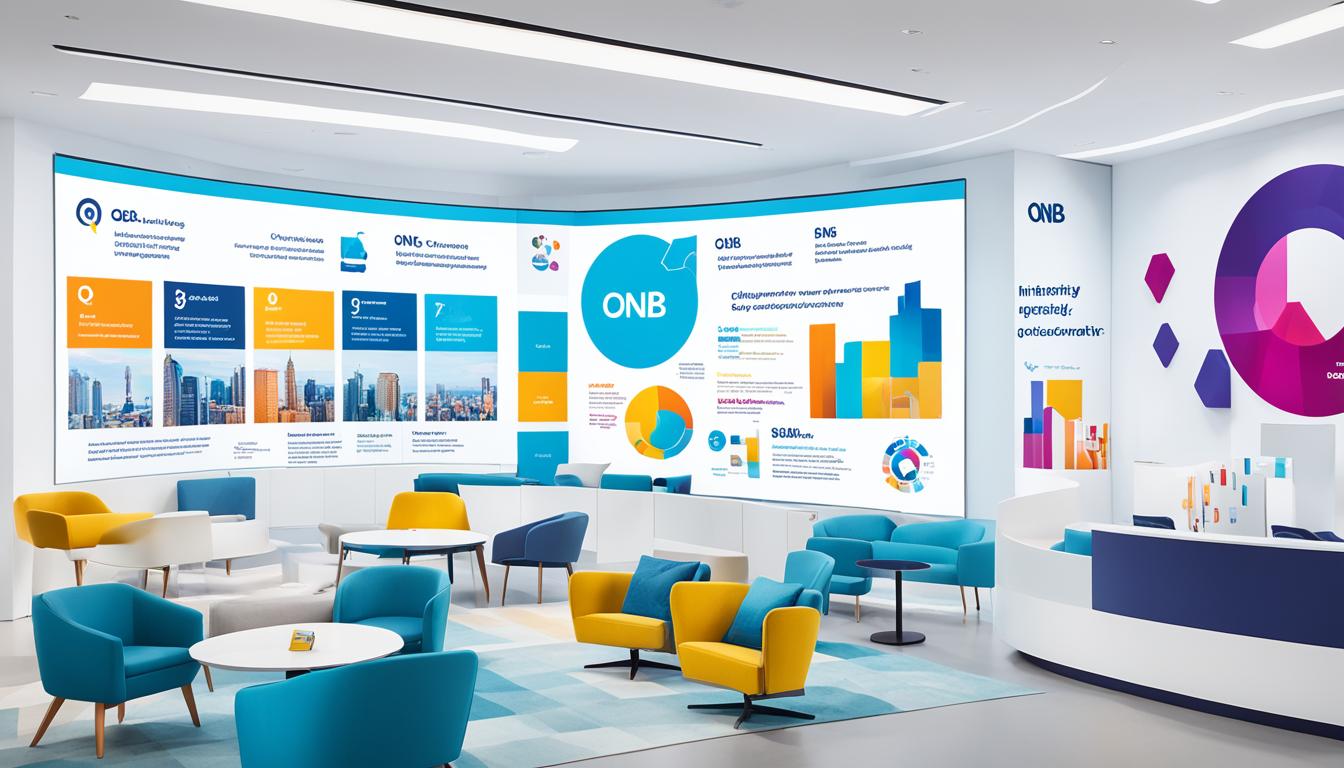Ghost Marketing is a white label marketing strategy characterized by anonymity, customization, and scalability. It allows companies to collaborate with third-party agencies to expand their services without extensive investment. This approach provides benefits such as faster go-to-market strategies, access to specialized skills and tools, and cost-effective solutions. Similar to White Label Marketing, Ghost Marketing focuses on maintaining anonymity and brand identity.
Examples of Ghost Marketing services include digital services, content creation, website development, and marketing software. With Ghost Marketing, businesses can harness the expertise and resources of third-party agencies to enhance their marketing efforts and achieve better outcomes in the marketplace.
Key Takeaways
- Ghost Marketing is a white label marketing strategy that allows companies to expand their services without heavy investment.
- It focuses on anonymity, customization, and scalability, providing faster go-to-market strategies and cost-effective solutions.
- Ghost Marketing is similar to White Label Marketing, but it emphasizes maintaining brand identity.
- Examples of Ghost Marketing services include digital services, content creation, website development, and marketing software.
- Through Ghost Marketing, companies can collaborate with specialized providers to enhance their marketing efforts and achieve better outcomes.
How Does Ghost Marketing Work?
Ghost Marketing is a highly effective strategy that enables businesses to outsource their marketing efforts to third-party agencies while maintaining control over their brand and reputation. This approach allows companies to leverage the expertise and resources of specialized providers without the need for extensive investment or in-house marketing teams.
Anonymity is a fundamental aspect of Ghost Marketing, as the third-party agency remains undisclosed to the public and competitors. This ensures that the client’s brand and reputation are protected while benefiting from the agency’s services. By maintaining anonymity, businesses can create a sense of mystery and intrigue, capturing the attention of their target audience.
Customization is another key feature of Ghost Marketing. Agencies tailor their products or services to align with the client’s branding and specifications. This level of customization ensures that the marketing efforts seamlessly integrate with the client’s existing strategy and brand identity, enhancing the overall effectiveness of the campaign.
Ghost Marketing provides numerous benefits for both agencies and clients alike. For agencies, it allows them to focus on their core competencies and expand their service offerings without heavy investment. By adopting the Ghost Marketing model, agencies can manage a larger number of clients and projects, maximizing their reach and profitability.
Clients, on the other hand, benefit from specialized skills and tools that the agency brings to the table. These agencies have extensive experience and expertise in the field of marketing, enabling them to deliver high-quality services and solutions to their clients. Additionally, Ghost Marketing offers cost-effective strategies that allow businesses to achieve faster go-to-market strategies, gaining a competitive advantage in their industry.
In conclusion, Ghost Marketing works by providing businesses with the ability to outsource their marketing efforts to specialized agencies while maintaining control over their brand and reputation. Anonymity and customization are key aspects of this strategy, ensuring that the client’s brand remains protected while benefiting from the expertise of the agency. Both agencies and clients stand to gain numerous advantages from implementing Ghost Marketing techniques, including specialized skills, cost-effective solutions, and faster go-to-market strategies.
Advantages of Ghost Marketing
Incorporating Ghost Marketing into your business strategy offers numerous benefits for both agencies and clients. Let’s explore the advantages that make Ghost Marketing a compelling choice:
For Agencies:
- Focus on Core Competencies: By outsourcing marketing tasks to specialized Ghost Marketing agencies, businesses can concentrate on their core competencies, ensuring efficient operations and optimal results.
- Expand Service Offerings: Ghost Marketing allows agencies to diversify their services without significant investment. This flexibility enables them to provide clients with comprehensive solutions and cater to various marketing needs.
- Enhanced Project Attention: Each project receives the attention it deserves as agencies can allocate their resources dedicatedly. This customized approach ensures that every client’s goals are prioritized and achieved.
For Clients:
- Access to Specialized Skills and Tools: Ghost Marketing enables clients to tap into the expertise and resources of professional agencies. This access to specialized skills and tools empowers businesses to leverage cutting-edge strategies and technologies for superior marketing outcomes.
- Faster Go-to-Market Strategies: Ghost Marketing agencies are equipped with industry insights and efficient processes, allowing clients to expedite their go-to-market strategies. This speed-to-market advantage enables businesses to seize opportunities swiftly and gain a competitive edge.
- Cost-Effective Solutions: Employing Ghost Marketing services offers cost-effective solutions compared to building an in-house marketing team. By partnering with agencies, clients can achieve high-quality results within their budget, maximizing their return on investment.
Ghost Marketing presents agencies and clients with the opportunity to scale their services, reach a wider audience, boost profitability, and achieve remarkable marketing outcomes. The strategic integration of Ghost Marketing can unlock immense potential for businesses seeking impactful marketing solutions.
| Advantages | For Agencies | For Clients |
|---|---|---|
| Focus on Core Competencies | ✓ | |
| Expand Service Offerings | ✓ | |
| Enhanced Project Attention | ✓ | |
| Access to Specialized Skills and Tools | ✓ | |
| Faster Go-to-Market Strategies | ✓ | |
| Cost-Effective Solutions | ✓ |
Ghost Marketing Methods
Ghost Marketing utilizes a range of creative strategies to indirectly promote products or services. By employing these methods, marketers can capture audience attention, adapt to changing trends, engage with diverse audiences, and create a sense of mystery and intrigue surrounding the brand. Let’s explore some examples of Ghost Marketing strategies:
- Influencer Collaboration: One highly effective Ghost Marketing method is influencer collaboration. In this approach, influencers endorse products or services without explicitly revealing the brand. This creates curiosity and interest among their followers, generating buzz and creating a connection with the target audience.
- Anonymous Content Creation: Another method is anonymous content creation. Marketers subtly promote a product or service without overt branding. By leveraging captivating narratives or engaging visuals, they pique curiosity and draw the audience’s attention without directly associating the content with a specific brand.
- Pseudo-Brands: Marketers also utilize pseudo-brands to cater to diverse audience segments. These pseudo-brands may be created or sponsored by the company, allowing them to target specific demographics or subcultures without directly promoting their main brand. This enables the company to engage with different audiences and test new marketing approaches.
Through these and other Ghost Marketing methods, marketers can create an aura of anticipation, curiosity, and interest, leaving a lasting impression and increasing brand awareness. The image below further illustrates the concept of Ghost Marketing strategies:
By implementing these successful Ghost Marketing strategies, businesses can effectively promote their products or services while maintaining an air of mystery and intrigue.
Case Studies of Ghost Marketing
Ghost Marketing has proven to be a powerful strategy for attracting and engaging audiences. Two notable examples of successful Ghost Marketing campaigns are Netflix’s “Walter White” strategy and Burger King’s “The Subservient Chicken” campaign.
Netflix’s “Walter White” Strategy
In an effort to increase viewership for the critically acclaimed show “Breaking Bad”, Netflix implemented a clever Ghost Marketing tactic. They created a fictitious LinkedIn profile for the show’s main character, Walter White, a high school chemistry teacher turned methamphetamine manufacturer. By engaging with a targeted audience interested in chemistry, Netflix effectively generated buzz and intrigue among fans, ultimately driving higher viewership for the show.
Burger King’s “The Subservient Chicken” Campaign
Burger King employed an innovative Ghost Marketing strategy known as “The Subservient Chicken” campaign. They launched a website where users could interact with a person dressed as a chicken who would carry out various commands. This creative and unconventional approach garnered significant attention and sparked curiosity among consumers. Without overtly promoting the brand, Burger King successfully generated buzz and drew attention to their products and offerings.
These case studies showcase the effectiveness of Ghost Marketing in capturing audience attention and engaging with consumers. By leveraging creativity and strategic anonymity, brands can generate intrigue and foster genuine connections with their target audience.
Ethical Considerations in Ghost Marketing
Ghost Marketing, while providing numerous benefits for businesses, raises ethical considerations in terms of transparency, integrity, and disclosure. Critics argue that if not done transparently, Ghost Marketing can be deceptive and misleading to consumers. Marketers must find a delicate balance between creativity and ethical integrity to ensure that their promotional efforts align with ethical standards and do not erode trust or harm the reputation of the brand.
Transparency is crucial in Ghost Marketing to maintain consumer trust. Disclosing the connection between promotional content and the brand is essential. By doing so, consumers are aware of any potential influence or bias, allowing them to make informed decisions. Proper disclosure enables transparency and ensures that the marketing efforts are clear and forthright.
Integrity is another important ethical consideration in Ghost Marketing. Marketers must prioritize maintaining the integrity of their brand identity and reputation. By adhering to ethical standards, marketers can build and nurture long-term relationships with their audience. This includes avoiding any misleading or deceptive practices that could lead to negative perceptions of the brand.
Strategically navigating these ethical considerations in Ghost Marketing is essential for building and maintaining consumer trust. By operating with transparency, integrity, and proper disclosure, marketers can ensure that their promotional efforts align with ethical standards and contribute positively to the overall brand image.
To illustrate the importance of ethical considerations in Ghost Marketing, let’s take a look at the following case studies:
Case Study 1: Transparency in Influencer Collaboration
In this case, a beauty brand collaborated with influencers to promote their products. To ensure transparency, the influencers clearly disclosed their partnership with the brand, indicating that they were compensated for their endorsement. By doing so, the brand maintained transparency with their audience, fostering trust and credibility in their marketing efforts.
Case Study 2: Protecting Consumer Privacy
In another case, an e-commerce company used personalized retargeting to show ads based on consumers’ browsing history. However, to protect consumer privacy, the company ensured that the data used for retargeting was anonymized and complied with relevant data protection regulations. By prioritizing consumer privacy, the company demonstrated ethical integrity and reinforced trust with their audience.
These case studies highlight the importance of considering ethical implications in Ghost Marketing. By prioritizing transparency, integrity, and proper disclosure, businesses can use Ghost Marketing strategies responsibly while building strong, ethical brand connections with their target audience.
The Power of Ghost Marketing
While Ghost Marketing can be a powerful tool for marketers, its ethical use is paramount. When implemented correctly, Ghost Marketing allows brands to forge genuine connections with consumers, foster long-term brand loyalty, and harness the power of the unseen. By leveraging mystery and adaptability, brands can capture audience attention, engage with diverse segments, and create a sense of intrigue. By navigating the ethical landscape, brands can use Ghost Marketing to their advantage while maintaining transparency and integrity.
Ghost Marketing offers numerous benefits and advantages for businesses and marketers. The ability to maintain brand anonymity while reaching a broader audience is one of the key benefits. By remaining unseen, brands can pique curiosity and create a buzz around their offerings. Additionally, Ghost Marketing allows brands to tailor their messages to specific segments without diluting their core brand identity.
Another advantage of Ghost Marketing is its ability to adapt to changing trends and audience preferences. By remaining agile and responsive, brands can ensure they stay relevant and continue to engage their target market effectively. This adaptability also allows brands to experiment with different strategies and tactics without risking their main brand image.
Furthermore, Ghost Marketing enables brands to tap into specialized skills and expertise that may not be available in-house. By partnering with third-party agencies or professionals, brands can access a diverse range of talents and resources to enhance their marketing efforts. This can lead to more innovative and impactful campaigns.
In summary, Ghost Marketing offers significant benefits and advantages for brands seeking to establish a strong presence in the market. By leveraging the power of the unseen and maintaining ethical standards, brands can create genuine connections with their target audience, foster loyalty, and achieve their marketing goals.
Incorporating Ghost Marketing in Your Strategy
To successfully incorporate Ghost Marketing into your strategy, partnering with experienced Ghost Marketing agencies like That! Company is crucial. By entrusting non-core tasks to specialized providers, agencies can streamline their operations and deliver the best possible results to their clients. Ghost Marketing offers a range of opportunities for agencies to expand their service offerings without requiring significant investment. This allows them to take on more clients and projects, ultimately improving overall client satisfaction.
When agencies embrace Ghost Marketing, they unlock a treasury of expertise and tools that can accelerate their go-to-market strategies. By collaborating with external specialists, agencies can acquire specialized skills that enhance the quality and effectiveness of their marketing initiatives. Additionally, Ghost Marketing enables agencies to provide cost-effective solutions to their clients, offering maximum value for their investment.
By partnering with reputable Ghost Marketing agencies, your business can confidently incorporate this innovative strategy into your marketing efforts. With the ability to scale your services, broaden your reach, and improve profitability, Ghost Marketing provides a powerful means of achieving better outcomes and establishing your brand’s presence in the marketplace.
Ghost Marketing Tips
- 1. Research and Select a Trusted Ghost Marketing Agency: Take the time to identify reputable Ghost Marketing agencies with a track record of success. Look for agencies that align with your brand’s values and have a deep understanding of your industry.
- 2. Clearly Define Your Brand Identity: Provide detailed guidelines and brand assets to ensure that the Ghost Marketing agency can accurately represent your brand’s voice and image across various channels.
- 3. Set Clear Goals and Expectations: Clearly communicate your marketing objectives and desired outcomes to the Ghost Marketing agency. This will help them tailor their strategies to meet your specific needs.
- 4. Maintain Open Communication: Regularly communicate with the Ghost Marketing agency, providing feedback and addressing any concerns. Collaboration and transparency are key to a successful partnership.
- 5. Monitor and Measure Results: Implement a system to track and measure the effectiveness of your Ghost Marketing campaigns. This data will allow you to refine your strategies and optimize future marketing efforts.
By following these Ghost Marketing tips, you can effectively incorporate this innovative strategy into your overall marketing strategy, unlocking new opportunities for growth and success.
| Benefits of Incorporating Ghost Marketing |
|---|
| Expanded service offerings |
| Increased client satisfaction |
| Access to specialized skills and tools |
| Cost-effective solutions |
| Faster go-to-market strategies |
Conclusion
Ghost Marketing offers businesses the unique opportunity to expand their services and maintain brand identity through anonymity and customization. By collaborating with specialized providers, businesses can tap into a wealth of expertise and resources, allowing for faster go-to-market strategies and access to specialized tools and skills. Clients can also benefit from cost-effective solutions that provide value and meet their specific needs.
While ethical considerations are important in Ghost Marketing, when implemented correctly, it can be a powerful tool for building brand presence and reputation in the marketplace. By navigating the landscape diligently and transparently, businesses can harness the potential of Ghost Marketing to forge genuine connections with consumers and foster long-term loyalty.
Overall, Ghost Marketing presents a compelling option for businesses looking to expand their reach and offer a wide range of services. By leveraging the expertise of third-party agencies while maintaining control over their brand, businesses can maximize their marketing efforts and achieve better outcomes in a competitive landscape.







